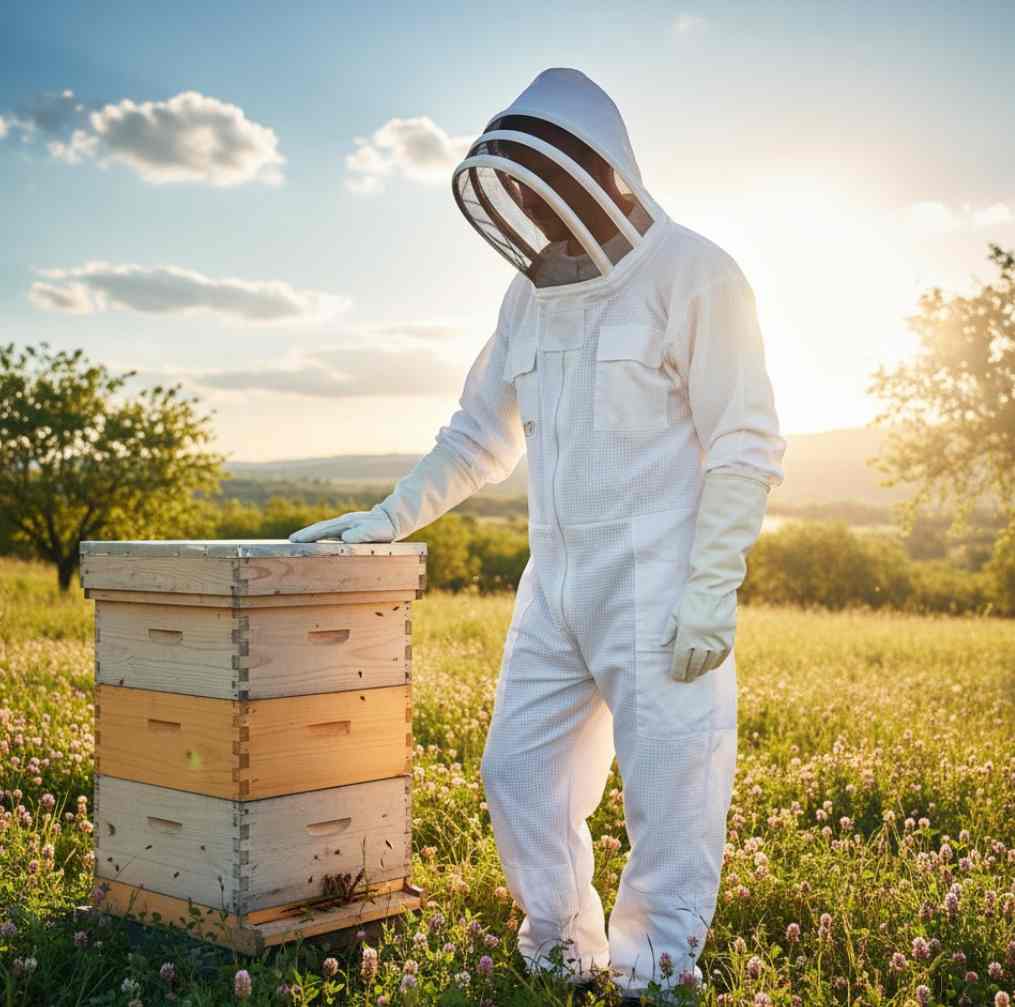Beekeeping Guide
Smoker Use: Cool, Gentle Smoke for Calmer Hive Work
The smoker is your calm-maker. Use it to mask alarm pheromones and guide bees off your work area—without drenching the hive. Here’s how to light it, test it, and use it the right way.

Choose the Right Fuel
| Fuel | Pros | Notes |
|---|---|---|
| Pine needles / wood shavings | Easy to light, pleasant aroma | Ensure dry; avoid resin-heavy chunks that burn hot |
| Burlap (natural/untreated) | Long, steady cool smoke | Confirm no chemical treatment or dye |
| Wood pellets | Consistent burn, low ash | Start with a kindling base; then add pellets |
| Cardboard egg flats (plain) | Lights fast, good for topping up | No glossy inks, tape, or glue |
| Dried herbs (thyme, lavender) | Light scent, great as a finisher | Use sparingly; can burn fast |
Avoid: treated/painted wood, glossy cardboard, plastics, or anything with chemicals.
How to Light Your Smoker (Step by Step)
- Start a kindling bed: Add a small handful of dry kindling (pine needles or shavings). Light and gently puff the bellows until flames are steady.
- Build the base: Add more fuel a little at a time while puffing, letting flames catch.
- Pack for cool smoke: When burning well, add a larger handful and press lightly with your hive tool. Close the lid.
- Test the smoke: A good smoker produces cool, white smoke that you can comfortably pass over your bare hand.
- Maintain: A slow, steady puff every minute or so keeps it lit. Top up fuel as needed.
How to Use the Smoker on the Hive
- At the entrance: 2–3 gentle puffs; wait 30–60 seconds so bees pass it around.
- Under the lid: Crack the cover, add 1–2 light puffs under the inner cover, then lift.
- While working: If tone rises (pitchy buzz, guards lining top bars), give a single light puff and pause.
- Where not to aim: Avoid blasting brood frames directly; keep smoke above/behind the bees.
Read the Room
- Calm: Low hum, bees stay on comb → carry on, no extra smoke needed.
- Alert: Higher-pitched buzz, bees track your veil → step back, 1 light puff, wait 30s.
- Agitated: Bees head-butting veil, lining top bars → close up a bit, reset with a couple of puffs, reopen slowly.
Troubleshooting
| Problem | Why it Happens | Fix |
|---|---|---|
| Smoke is hot/harsh | Fuel packed too tight or burning too fast | Open lid; stir, add cooler fuel (needles/burlap), puff gently |
| Smoker keeps going out | Fuel damp / not enough air | Use dry fuel; loosen packing; give a few steady puffs |
| Thick clouds, bees retreat | Over-smoking | Cut back—aim for brief, cool puffs and wait between |
| Tar buildup | Heavy resins / long use | Scrape can with a hive tool; burn out with plain fuel at end |
Safety & Aftercare
- Fire safety first: Check local fire restrictions. Keep a water bottle/sand nearby; place the smoker on non-flammable surfaces.
- Cool it down: When done, smother by plugging the nozzle and closing vents, or douse embers with water—never leave a hot smoker unattended.
- Storage: Store cool and empty. Periodically scrape residue and check the bellows for cracks.
Quick Tips
- Less is more—your goal is calm, not fog.
- Combine with good timing (warm, calm days) and smooth handling for the best results.
- Wear a well-fitted, slightly looser suit and secure overlaps at gloves/ankles.